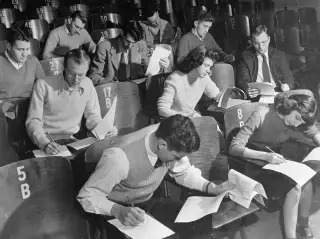Why Veterans Will Soon Save Thousands on College

Great news for college-bound veterans and their families: Starting next year—the fall of 2015—veterans and their dependents will be able to pay low in-state tuition at any public university in the country.
A bill granting veterans automatic in-state status at the nation’s public colleges got final bipartisan approval by Congress last Thursday, and President Obama has said he will sign it into law.
While public colleges are concerned that the new bill will cost them money, veteran’s organizations are thrilled. “We’re really excited,” says William Hubbard, vice president of government affairs for the Student Veterans of America, which estimates there are 550,000 veterans currently in higher education.
Because members of the military often spend long periods overseas, many don’t maintain residency in any U.S. state. So servicemen and women often can’t find an affordable college when they return home to start civilian life, Hubbard says.
Twenty-four states have passed state laws giving vets in-state status at their public colleges, but many veterans live or want to live in states that haven't done so, such as California or North Carolina, he says. At the University of North Carolina, for example, in-state residents are charged tuition and fees of about $6,400 this year; out-of-state students pay roughly $31,800.
The bill could save families tens of thousands of dollars, since the automatic in-state status will also be granted to veterans' spouses and children.
Because veterans won’t have to wait to establish residency in a state to pay the lower tuition, the new law will also save time and speed the transition to civilian life, says Ryan Tomlinson, education program coordinator of the Iraq and Afghanistan Veterans of America. “I’m happy for the vets,” he says. “This increases their access to good colleges.”
Public colleges and universities, while sympathetic to the veterans’ plight, expressed concern that Congress was forcing them to take on extra expenses. Peter McPherson, president of the Association of Public Land-Grant Universities, notes that states have been cutting the budgets of public colleges for years. This new law, by reducing their tuition revenues, “would add further financial strain to these institutions,” he warned.
Learn more about Money's Best Colleges 2014-2015
- The Best Colleges for Your Money
- The 25 Most Affordable Colleges
- 22 Colleges Where You Can Earn a Degree for Free